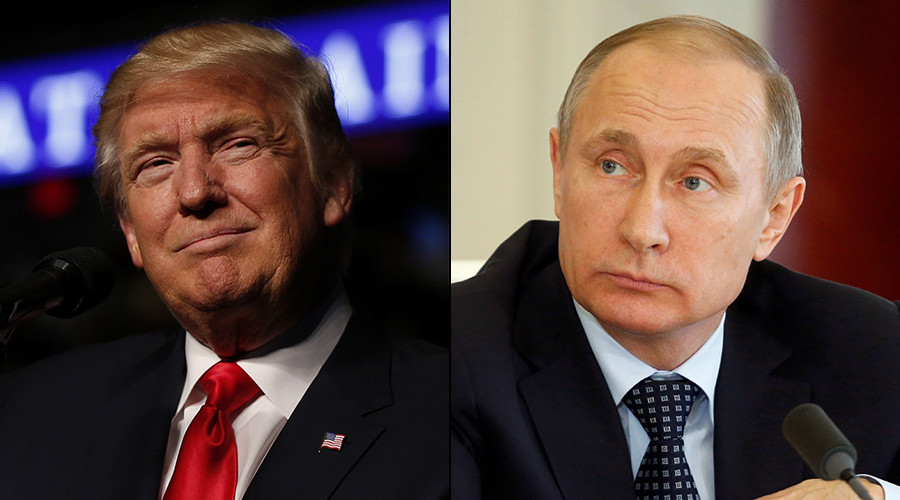OPINION: Syria Fuze And Two Men With Fragile Egos

Modern announcements of the threat or commencement of hostilities tend to follow a familiar pattern of hypocrisy. Often following ultimatums, they are measured and regretful for the simple reason that even the most gung-ho leaders are painfully aware that conflict brings consequences that are hard to control, and that exultation and bitterness are two sides of the same coin, separated only by the experience of violence.
At the outbreak of the first world war, Kaiser Wilhelm II attached himself to these ritual formalities, declaring: “With a heavy heart, I have been compelled to mobilize my army against a neighbor at whose side it has fought on many a battlefield. With genuine sorrow do I witness the end of a friendship, which Germany loyally cherished. We draw the sword with a clean conscience and clean hands.”
But conflicts, and the language of propaganda attached to them are colored by the personality of leaders and by the nature of their regimes. This produces what Luis Veres, a researcher into the language of fascist Spain, memorably described as “lexical arsenals”.
The lexical arsenal of Donald Trump has become wearily familiar in his time at the White House. Delivered usually on Twitter, it has long summoned up an image of a grandiose and unedited narcissistic id, in dialogue not with the US or the international community, but with cable television.
Responding to a Russian warning that it would shoot down US missiles fired on Syria in response to the latest suspected gas attack on Douma, Trump railed: “Russia vows to shoot down any and all missiles fired at Syria. Get ready Russia, because they will be coming, nice and new and “smart!” You shouldn’t be partners with a Gas Killing Animal who kills his people and enjoys it!”
The danger is not simply in the schoolyard language, but Trump’s signature sloppiness and lack of detail. Even if he is not (in his own mind at least) issuing a threat to target Russian forces directly, his tweet can be read like that with his “get ready Russia” and exultant gloating.
What is said – and how it is said – matters when justifying the use of force
Why all this matters is because in diplomacy – especially the diplomacy of war – the niceties of language are employed in defense of the legal status of armed conflict between states. What is said – and how it is said – matters when justifying the use of force. In Trump’s remarks, the appeal to international law and ethics emerges as nothing more than an expression of his personal outrage, and the dangerous diplomacy of “ya, boo, sucks”. Perhaps we should not be surprised by such comments from a political leader who has long ignored the counsel of his own lawyers, and for whom the world appears as a binary struggle, with those challenging him portrayed with nicknames and in the crudest terms of otherness.
Most dangerous of all is how this message can be read both wilfully and in visceral terms in Moscow as a deliberate threat with no room for compromise, not least if there are Russian casualties in any US airstrikes on Syria.
If a sense of escalation has been palpable in the past few days, first in the Russian threat to shoot down US missiles, then Trump’s knee-jerk response, what is clear is that in his tweet, Trump has dangerously widened the scope of the crisis, from frustration among the international community at Moscow’s shielding of Assad, to hinting at the possibility of a clash with Russia.
That plays into deeper and darker themes of a competition between Putin and Trump – both thin-skinned populist nationalists who have vowed to make their countries “great again”. Two men with fragile egos who have each yoked to their national ambitions.
What is abundantly clear is that in just over three dozen ill-conceived words, Trump has added a new a sense of peril to the war in Syria … Peter Beaumont, The Guardian, Apr. 11





